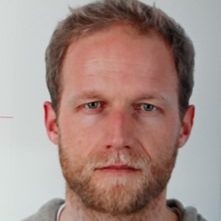Funding source: Federal Foreign Office, Germany through the German Academic Exchange Service (DAAD)
DAAD Project ID: 57587014
Coordination: Pro-RUWA team at University of Kassel (Germany)
Deadline for application: July 08, 2024
Contract location: Witzenhausen/Kassel, Germany
Deadline for completion: November 30, 2024
Contact person: PD Dr. Martin Wiehle
Background
The German Academic Exchange Service (DAAD)-funded West African-German network „Promoting Academic Capacities for Sustainable Agricultural Resources Use in West Africa“ – Pro-RUWA was established to train a new generation of regionally and internationally educated young scientists, entrepreneurs, and administrators. Pro-RUWA builds on existing structures of three young universities in West Africa namely the University of Abomey-Calavi (UAC, Benin), University of Abdou Moumouni (UAM, Niger), University of Daniel-Ouezzin Coulibaly (UDOC, Burkina Faso) that have recently decided to internationalize their graduate education.
Within the network, several units exist or are about to be established which capacitate future decision-makers in francophone West Africa to jointly overcome bottlenecks in resource misuse and food insecurity at the national and regional level by fostering university education, international relations, and regional development. One of the Pro-RUWA pillars is to capacitate students and lecturers in up-to-date technologies which allow them to better understand the complex nature of socio-ecological systems by collecting, processing, analysing, and interpreting multidimensional data. To do so, we develop and provide open-source e-learning and e-teaching materials and courses with a particular focus on the realities and educational context of the three countries. In recognition of the need for a broader reform in research methods and data science teaching, we see these resources being used not just for the MSc and PhD level courses but for a number of other courses and contexts.
In this context, classical and up-to-date statistical algorithms and applications empowered through the open-source software R are vital in agricultural research for its robust data analysis capabilities. It handles diverse data types offering tools for exploratory analysis, hypothesis testing, and predictive modelling. This helps researchers optimize resource use and improve management strategies. R’s open-source nature encourages innovation and adaptation to agricultural challenges, supporting efforts in food security and sustainability. Its comprehensive statistical functions enable an understanding of complex trends, essential for effective agricultural decision-making. We aim to produce materials will be licensed as open educational resources (Creative Commons license CC BY) and wherever possible all other materials including data will be open.
The topics should include the essentials of R/RStudio usage, understanding R syntax, and performing basic tasks. The module will address data handling techniques, including importing, cleaning, and exporting data, as well as generating and interpreting descriptive statistics. Various statistical tests, including post-hoc tests (e.g. t-tests) and analysis of variance (ANOVA) explaining the significance of p-values must be core of the module. Key experimental design concepts, such as completely randomized designs (CRD) and randomized complete block designs (RCBD) would be introduced and discussed with the students. Participants should gain a thorough understanding of statistical tests employed in how far results can be interpreted. Emphasizing practical applications, the module should aim to use examples from agricultural sciences and experimental biology/ecology to equip students with the skills needed for handling real-world data, performing adequate analyses, and presenting findings professionally.
Intended output
Overall, we propose an e-learning course with about 12 learning hours fully online. Materials should be made available online for self-learning activities. The online repository will be the in-house and Moodle-based African Excellence platform DIGI-FACE. Graduate students who want to use R application for statistics for their own research, or teachers who wish to include R application in their teaching programs.
We request a three-step stage plan including the (i) development of the respective module, the (ii) implementation and also a later (iii) an adjustment phase based on feedbacks by participants.
How to apply?
The application must contain
- Letter of motivation (max. 1 page)
- CV (individual persons) or company profile including portfolios of already completed and conducted contracts (max 3. pages)
- Pricing by task (pre- and post-production, based on salaries usual in the higher education sector) including VAT (MwSt) – if applicable. Projected costs must include all course-related expenses (salaries, consumables, if applicable mobilities) – i.e. no additional costs will be covered.
Contact
www.uni-kassel.de/forschung/pro-ruwa/home
Tel: +49 (0) 5542 98 1372
email: pro-ruwa@uni-kassel.de
You must be logged in to rate posts.



